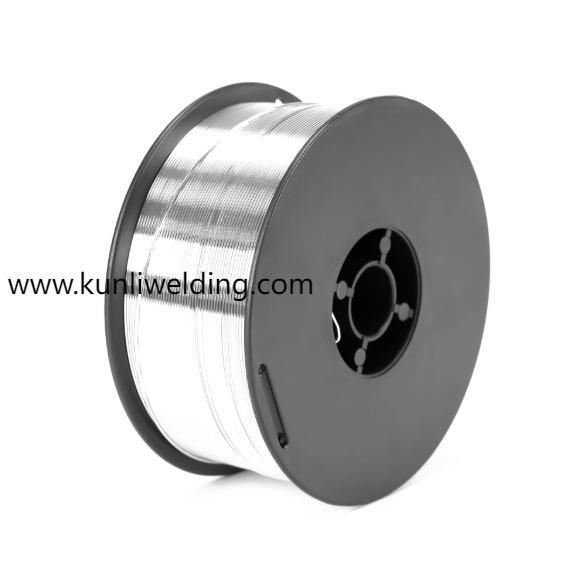Kunliwelding Tips for Fixing Common Aluminum MIG Welding Defects

Navigating the unique challenges of MIG welding aluminum often leads fabricators to seek reliable advice and quality materials. Aluminum Mig Wire Manufacturers play a crucial role in supplying alloys that minimize common defects like porosity and burn back. When conditions are harsh—such as in electric vehicle battery enclosure assembly or coastal offshore structure projects—understanding root causes and precise remedies makes the difference between repeated rework and efficient production.
Oxide Layer Interference
Aluminum quickly forms an oxide film that resists melting and fusion. This results in lack of fusion defects or stippled bead surfaces. To address this, thoroughly clean base metal with a dedicated aluminum solvent and mechanically brush with an aluminum-only wire brush. Maintaining a spotless joint area aligns with stringent quality demands in renewable energy farm installations where long term corrosion resistance is critical.
Wire Feed Inconsistency
Erratic feeding often creates burn back at the contact tip or birdnesting in the liner. This can be aggravated by improper liner diameter or damaged drive rolls. Employ a smooth bore liner matched to the wire diameter and install hardened drive rolls. Regularly adjust wire feed tension so the wire glides under steady pressure. In high volume fabrications like electric rail car cabling, reliable feeding reduces downtime and preserves production schedules.
Porosity in Weld Beads
Gas entrapment and moisture lead to pinholes in the weld bead. Use high purity shielding gas with a tight flow meter calibration to maintain laminar gas coverage. Store wire spools in sealed containers with ***ccant packs to prevent moisture absorption. These practices echo the precision needed in aerospace component welding where intermittent gas disruptions cannot be tolerated.
Inadequate Penetration
Shallow weld penetration compromises joint strength under cyclic loading. Adjust travel speed and voltage to increase heat input without causing excessive distortion. For thicker sections, consider pulse MIG mode if the power source allows to concentrate heat directly at the fusion zone. Proper joint preparation and consistent root gap ensure that weld pools fully engage the backing plate or adjoining workpiece.
Spatter and Surface Irregularities
Excessive spatter forces additional cleanup and may introduce inclusions. Fine tuning the push angle and reducing contact tip to work distance helps maintain a narrower arc. Lowering wire feed speed slightly while increasing voltage can create a smoother arc that minimizes droplets. These adjustments benefit fabricators in sectors where visible weld appearance impacts finishing time, such as consumer electronics chassis assembly.
Burn Through on Thin Sections
Overheating thin panels leads to punctures and wasted material. Employ trailing shields or backing bars to dissipate heat and support the molten pool. Monitor heat input by varying travel speed and keeping amperage within a safe range. This method supports precise joining in lightweight mobility structures where material thickness varies across complex contours.
Selecting the Right Alloy
The choice of filler wire impacts all of these variables. ER5183 aluminum welding wire offers a balance of mechanical strength and corrosion resistance suited for dynamic environments. Its composition helps maintain bead shape and reduces cracking risk when paired with proper technique. Fabricators upgrading processes for hydrogen fuel system welding applications or next generation bus frame production often turn to suppliers who guarantee consistent alloy performance.
For more detailed guidance on achieving clean strong welds and to explore how ER5183 wire can enhance your MIG welding operations visit www.kunliwelding.com . There you will find in depth product information and expert recommendations tailored to automotive wind energy and industrial fabrication contexts. Partner with a supplier that understands both the material science and the field level troubleshooting essential for today's demanding welding projects.
- Art
- Causes
- Crafts
- Dance
- Drinks
- Film
- Fitness
- Food
- Jogos
- Gardening
- Health
- Início
- Literature
- Music
- Networking
- Outro
- Party
- Religion
- Shopping
- Sports
- Theater
- Wellness


